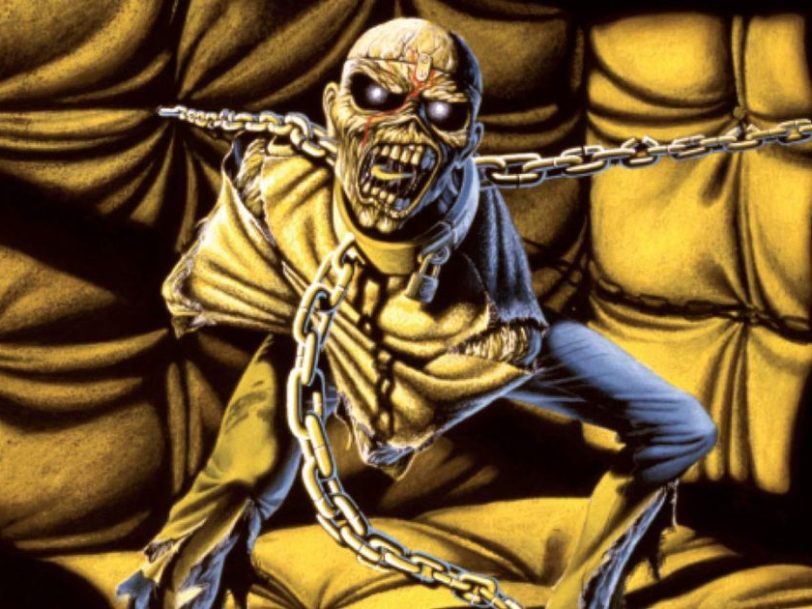Iron Maiden made a lasting statement with their masterful third album, The Number Of The Beast. A landmark record which inspired future metal megastars such as Metallica, Anthrax and Ghost, it yielded multi-platinum rewards, but its success inevitably brought pressure to sessions for what would become its follow-up album, Piece Of Mind.
Listen to ‘Piece Of Mind’ here.
The backstory: “It was Nicko’s first album, we felt like we were on a high”
Outwardly, Maiden didn’t seem unduly concerned, exuding the collective confidence of a group more than capable of coming up with the goods. Closer to home, though, bassist and team leader Steve Harris felt one more change of personnel was still required to enable his boys to take on the world on their own terms. Having brought one of the best rock frontmen of all time into the fold when they replaced original singer Paul Di’Anno with Bruce Dickinson following the release of their second album, Killers, Maiden now looked to add some extra firepower to its rhythm section.
Towards the end of their The Beast On The Road tour, long-time drummer Clive Burr had struggled with the band’s hectic schedule. Differing sources have since put this down to everything from alcohol-related issues to exhaustion and the fallout from the death of Burr’s father, but while the whole truth seemingly remains elusive, what is certain is that the drummer was asked to leave the group shortly after the tour ended. Steve Harris then drafted in a new sticksman, Nicko McBrain, who had previously played support to Maiden while drumming for French metal outfit Trust.
As well as displaying a highly developed technical ability behind the kit, McBrain had become friends with Maiden, but both band and fans alike were conflicted over Burr’s departure. In Mick Wall’s authorised Iron Maiden biography, Run To The Hills, Bruce Dickinson said of Burr, who died of MS in 2013, “I still think he’s the best drummer the band ever had. That’s not taking anything away from Nicko. Technically, Nicko’s probably a far more competent drummer than Clive. It’s just that Clive had this incredible feel, and you can’t learn that, and I regret that he wasn’t given more time to try to sort himself out.”




